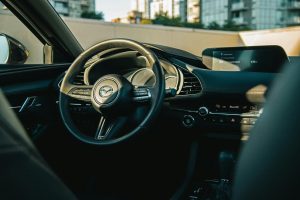China’s Luxury Market: Trends Shaping High-End Automotive
The Chinese luxury market has seen a rapid rise in recent years, with high-end automotive brands experiencing huge success. According to a report by McKinsey & Company, China is on track to become the world’s largest luxury market by 2025, surpassing the United States and Europe combined. With a growing economy and an increasing number of high-net-worth individuals, Chinese consumers are driving the demand for luxury products, especially when it comes to high-end automotive.
Chinese Consumers: A Growing Force in the Luxury Market
Chinese consumers have become a key factor in the global luxury market, and the automotive industry is no exception. In fact, China has been the world’s biggest car market since 2009 and is expected to make up a quarter of global car sales by 2025. What’s even more significant is the country’s growing appetite for luxury cars, which has been increasing at an impressive rate in recent years.
One of the main drivers of this growth is the rising number of affluent Chinese consumers. According to Credit Suisse’s 2021 Global Wealth Report, China now has the second-highest number of billionaires in the world, overtaking Germany and India. These high-net-worth individuals have a strong appetite for luxury and are willing to spend big on high-end automotive brands.
The Rise of the SUV: A Shift in Consumer Preferences
One of the biggest trends shaping the high-end automotive market in China is the growing popularity of SUVs. While sedans used to dominate the Chinese luxury car market, SUVs now make up the majority of sales. In 2020, SUVs accounted for 52% of luxury car sales in China, compared to just 30% in the United States. This shift in consumer preferences has led luxury car brands to adapt their strategies and focus more on SUV models.
One of the main reasons for this shift is the changing lifestyles and preferences of Chinese consumers. SUVs offer spacious interiors, a higher driving position, and a more prestigious image, making them the perfect choice for affluent individuals and families. Additionally, the popularity of SUVs is also driven by China’s roads, which are often congested and poorly maintained, making SUVs a more practical option for navigating the country’s challenging driving conditions.
The Importance of Localizing for Success in China’s Luxury Market
In order to appeal to Chinese consumers, luxury car brands need to adapt their strategies and offerings to suit the local market. This includes not only understanding consumer preferences but also navigating unique challenges such as government regulations, intense competition, and a complex distribution system.
Many luxury car brands have found success in China by partnering with local manufacturers or investing in production facilities in the country. This not only allows them to tailor their offerings to the Chinese market but also helps them overcome high import taxes and tariffs. For example, BMW has a joint venture with Brilliance Auto to produce cars in China, while Porsche has opened a new production facility in the country to meet the demand for its popular SUV models.
The Importance of Digital Presence
Another key factor for success in China’s luxury market is having a strong digital presence. Chinese consumers are highly connected and rely heavily on digital platforms for researching and purchasing products. This is especially true when it comes to luxury cars, which are often seen as a status symbol and a reflection of one’s personal brand.
Many luxury car brands have invested heavily in digital marketing, partnering with popular Chinese social media platforms such as WeChat and Weibo, as well as integrating e-commerce capabilities into their websites. They have also embraced digital innovation, such as augmented reality (AR) and virtual reality (VR) experiences, to provide a more immersive and personalized experience for potential customers.
Conclusion
China’s luxury market is a force to be reckoned with, and high-end automotive brands are making strategic moves to capitalize on this growth. The rise of SUVs, the importance of localization, and the need for a strong digital presence are all key trends shaping the market and driving success for luxury car brands in China. As the Chinese economy continues to grow and the number of affluent consumers increases, the demand for luxury cars is set to rise even further, making it a lucrative market for high-end automotive brands to invest in.









